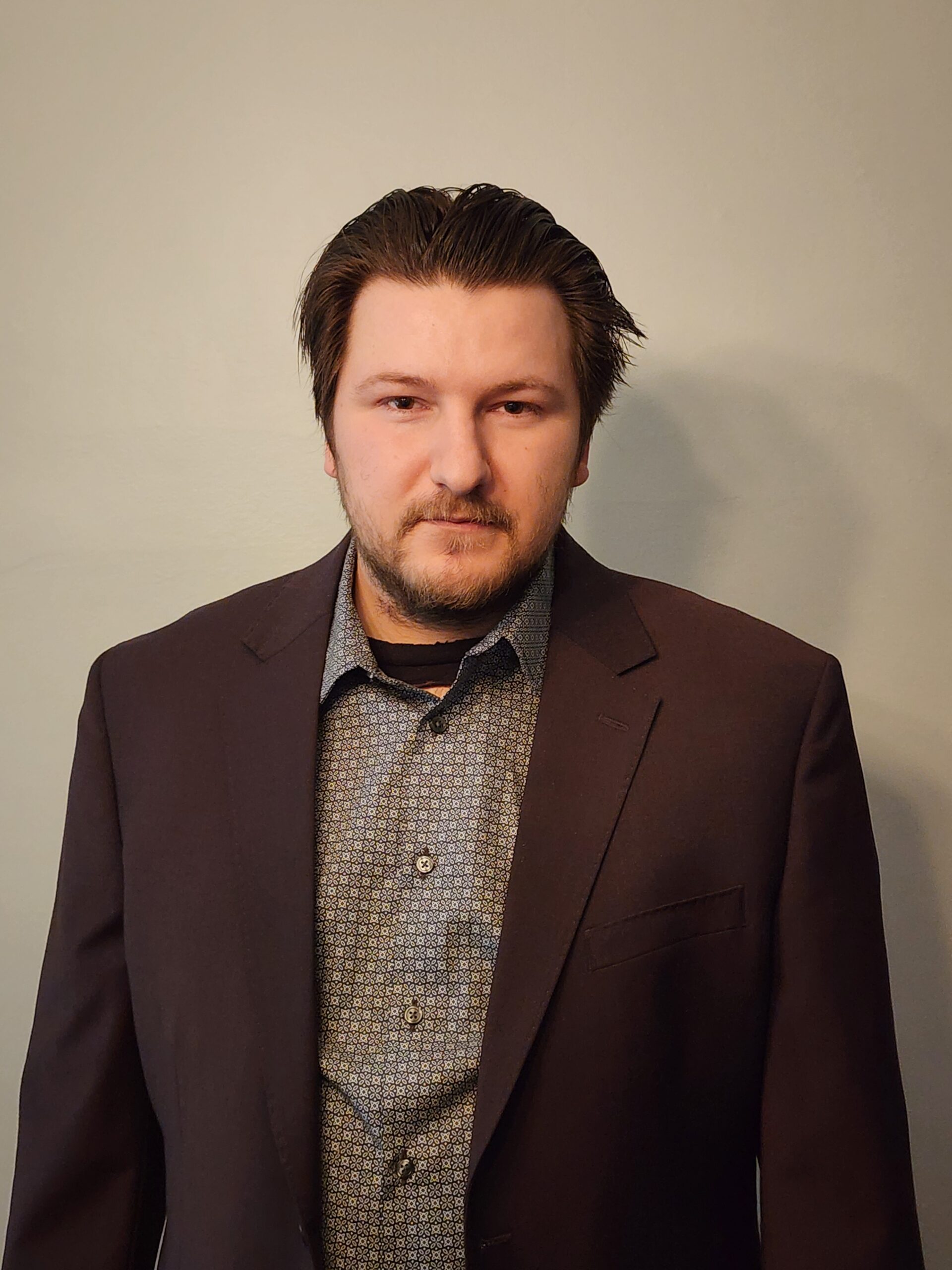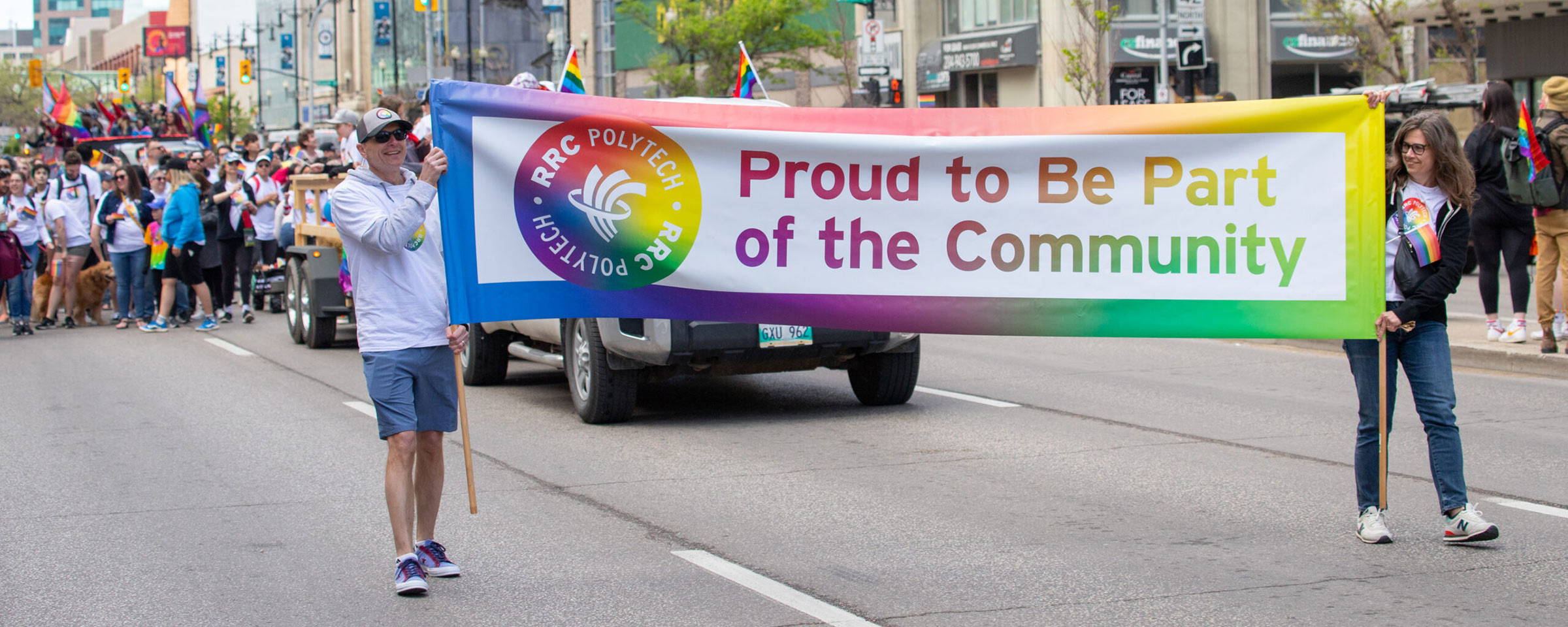World Autism Awareness Day
World Autism Awareness Day is an annual observance on April 2, designated in 2008 by the United Nations to acknowledge the lived experiences of individuals who have autism spectrum disorder (or autism), while advocating for their rights and bringing awareness to inequities.
Also known as World Autism Acceptance Day, the observance highlights the importance of accepting, supporting and including people with autism, so they can lead a full life and make meaningful contributions at work, at home and in the community.
At RRC Polytech, our Neurodiversity Employee Working Group plays a key role in fostering conversations about autism. They had the opportunity to collaborate with the Anti-Racism Action Committee on Immersive Stories during Inclusion Week, where they featured and interviewed Wilson Reid, a member of the Neurodiversity Working Group and an Instructor at RRC Polytech, who shared his personal journey of living with autism.
Today, Wilson is sharing his story again in a blog post where he discusses masking and stigma, which can be read below.

Instructor, Application Dev & Delivery
I have autism. Along with autism, I also live with bipolar 1 disorder, addictions, and Ankylosing Spondylitis. Today I’m focusing on autism. The remaining issues don’t have much overlap with autism.
For those that know me, this should come as a surprise, or at least I hope so. That’s because I perform something called masking. Simply put, masking is when I hide my struggles and try to appear like a neurotypical person. It doesn’t remove my issues, in fact it can make things worse. But, because of stigma and the pressure to “fit in”, I feel it’s necessary. Today, I want to talk about masking and stigma.
Hang on Wilson, why are you being so public about having autism if you go to such lengths to hide it? Well, I’m not actually ashamed of autism, it is what it is. By sharing this, I hope to raise awareness and understanding. The main reason I keep it private is to reduce stigma and avoid labels.
The way it works is very simple. If I tell someone I have autism on the first day we meet, that will frame every interaction moving forward. If we work together for a few months, and then explain I have autism, it switches to more of an explanation for certain things. The goal is to be seen as me, not as “the person with autism”. As a huge bonus, if the other person had negative views like “Autism? So, make sure to just give them data entry work only right?” can be forcibly disproven. I’ve worked at RRC Polytech for long enough, so I’m not super concerned.
What type of stigmas am I even combating against? I could try and cite specifics, but I think it’s more useful to just think at a high level here. This person is a doctor. This person is xyz. Without saying anything else, you can probably start to make assumptions about this person, maybe even have an image in your mind. This is using labelling and stereotypes. Stigma is effectively the same thing. The main difference is that it’s negative-orientated and can lead to discrimination and prejudice.
An example, if I were to apply for a job in a factory where it’s loud, some people with autism might struggle with sensory overload and experience meltdowns. This might cause a hiring manager to automatically rule out applicants with autism, even though sensory sensitivities vary, and there are solutions like earplugs. If I didn’t disclose my autism and performed well on the job, it would challenge that assumption.
One of the challenges of that theoretical person with autism would be how to not give away that they are autistic, especially in something like an interview. I want to avoid saying how you could guess that someone is autistic, so I’m going to focus on just one thing, eye contact. In many social situations, like interviews, making eye contact is expected. For many people with autism, making eye contact feels uncomfortable, like staring into the sun. It may sound simple, but it takes conscious effort. It’s not natural. And, over time, this masking can drain energy and cause stress.
There’s another thing about masking that you should be able to relate to. I can guarantee that you do this, even if you aren’t aware. We all adjust our behavior based on the situation. For example, we don’t swear in formal settings or act a certain way around children. For me, though, masking happens all the time. If you asked me to interact with someone without any mask, I’d likely remain silent, simply observing and evaluating the situation. This is a constant effort, and it’s exhausting.
I’ve really only touched the surface here, but I hope you’ve learnt a thing or two. Being open about autism is risky, and the effort to appear “normal” can be draining. Ultimately, all I can really ask you to do is know that not everyone is going to look you straight in the eye, that stigma is a real concern, and to understand someone with autism is usually trying their best to fit in.
